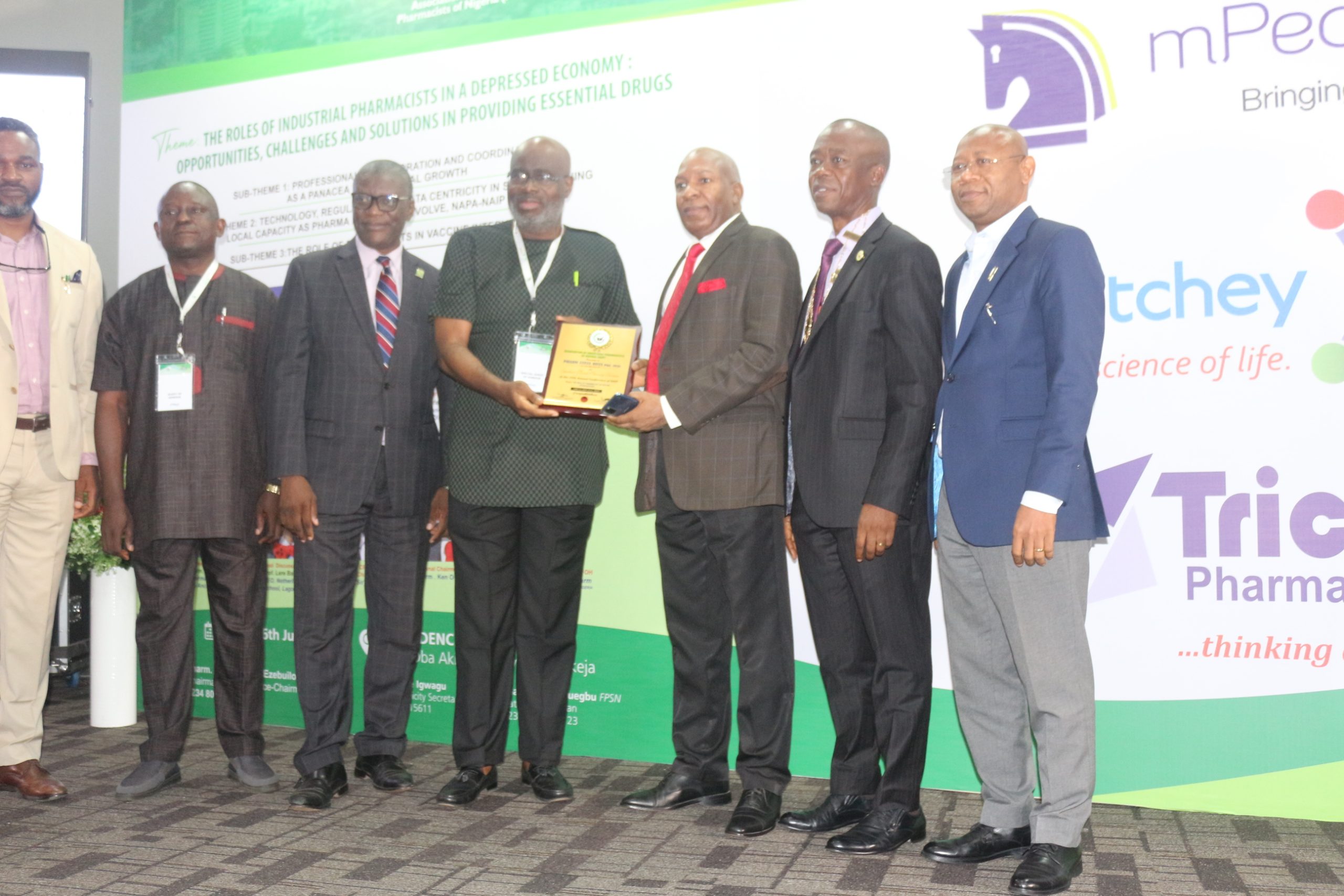
The Chairman and Chief Executive Officer, Anchor Healthcare Limited, Dr Steve Nwachi Onya, has charged industrial pharmacists in Nigeria to take the lead in vaccine intervention and manufacturing, stressing that this is long overdue.
Onya made the call while speaking at one of the plenary sessions of the recent Annual National Conference of the Association of Industrial Pharmacists of Nigeria (NAIP).
Onya, who had played a key role in the development of vaccine supply chain strategy for the Nigerian Primary Healthcare Development Agency for COVID-19 vaccine intervention, challenged drug manufacturers in Nigeria, who are mostly NAIP members, to start making moves to manufacture vaccines, saying they are better positioned to do so.
In his presentation titled, “The Role of Pharmacists in Vaccine Interventions”, Onyia said empirical evidence provided by existing literature on the role of pharmacists and pharmaceutical sciences in vaccine development and interventions, has proved that pharmacists have veritable roles to perform in vaccines and vaccination programmes as a public health tool.
According to the Anchor Healthcare CEO, vaccines represent fundamental public health intervention, aimed at counteracting and mitigating severe epidemiological and economic burden, generated by communicable disorders in terms of outcome, behaviour-related productivity gains, and community externalities in developed settings, as well as in developing countries.
He added that vaccines offer both direct and indirect protection (herd immunity) against infectious disorders, especially in populations that are yet to undergo epidemiological transition.
According to him, the emerging evidence during COVID-19 global vaccination programme has put to rest the argument on the role of pharmacists in vaccine intervention, noting that pharmacists are driven by their training in vaccine research and development, manufacturing, distribution, storage, community-based participatory research, and pharmacovigilance activities.
Onya, who is the former managing director and chief executive officer of Chi Pharmaceutical Limited, emphasised that extant, peer-reviewed, scholarly articles on the role of pharmacists in vaccines, biologicals and biosimilar design, manufacturing, distribution, administration, and pharmacovigilance, also reinforce the fact that pharmacists, especially industrial pharmacists, should lead vaccine intervention and manufacturing.
He expressed optimism that industrial pharmacists in Nigeria have what it takes to lead vaccine intervention and manufacturing, stressing that pharmacists are experts in vaccine designs, research and development, manufacturing, and quality assurance and control.
He added adding that pharmacists are also immunizers, vaccine distributors, educators, facilitators and administrators.
“Pharmacists are experts in promotion of health literacy related to vaccination as a public health tool; they support the removal of barriers to access to healthcare settings, offering immunisation services. They are also seen as chief protagonists to reduce vaccine hesitancy across populations,” he said.
Onya further pointed out that an international network of pharmacy practice researchers, with a strong interest and commitment toward pharmacist-led immunizations, at a recent meeting held at the University of Waterloo, Waterloo (Canada), have demonstrated clearly that pharmacists in community practice, hospitals, academia, research and development, and the industry play a veritable role in ensuring effective and efficient vaccine interventions, irrespective of the epidemiological evidence of people, place and time.
According to the expert, who is currently working in partnership with Active Pharmaceutical Ingredients for Africa (APIFA) and the European Investment Bank (EIB) to support the local manufacturing of Active Pharmaceutical Ingredients (APIs) in the sub-Saharan Africa, there are about six roadmaps to vaccine interventions and manufacturing for pharmacists, with the first being vaccine platform development.
He noted that many vaccines stimulate a strong antibody response against viral surface proteins, leading to neutralisation and removal of circulating virus, adding that vaccine platform development will stimulate a strong, long-lasting antibody response.
He said, “In general, when designing a vaccine, molecules on the surface of the virus are used as the main antigens as they can be bound by antibodies. However, including internal viral proteins can help increase the immune response by activating Macrophages. Also, the durability and strength of the immune response is also influenced by the addition of Adjuvants.
“The first consideration in vaccine development is to answer the question of ‘correlates of protection’. Correlates of protection are measurable immune responses that may indicate protection from the pathogen. These may be changes in immune cell populations or immune molecules such as cytokines or antibodies and can help researchers determine whether an individual is likely to be immune to reinfection with the pathogen.”
The second stage in the roadmap to vaccine manufacturing, according to Onyia, is clinical trial, which he said comprises about four phases.
He noted that phase one is limited trials on animals to determine safety, and leads optimisation. Phase two, according to him, involves extensive studies in humans, in limited human population, to determine mainly dosage, efficacy and safety. Phase three, Onya said, involves large scale studies in healthy human population, to reconfirm safety and efficacy, while phase four, otherwise known as PMS, is for post-marketing surveillance (pharmacovigilance), including bridging studies.
The third stage in the roadmaps to vaccine intervention, according to Dr. Steve Onya, is manufacturing, which mainly involves “fill and finish” activities, while following all the Good Manufacturing Practice (GMP) rules in manufacturing of biologicals, vaccines, and biosimilars.
Distribution and administration are the fourth and fifth stages in the roadmap to vaccine intervention. Onya explained that these stages should be the exclusive prerogative of pharmacists.
“Pharmacists have expertise and regulatory knowledge on how best drugs and biologicals are stored, including the impact of temperature excursions of drugs during storage across the distribution value-chain”, he said.
Pharmacovigilance, otherwise known as post-marketing surveillance, is the last stage in the roadmap to vaccine manufacturing. According to Onya, this stage is the most important stage as it monitors vaccine effectiveness and safety on the real world (marketplace). He disclosed that this stage is the right place to determine vaccine effectiveness, while the clinical trial phase determines vaccine efficiency.
Challenging industrial pharmacists to take the bull by the horn and start working on vaccine manufacturing, Onya assured that he is ready to work with them to achieve the goal.










